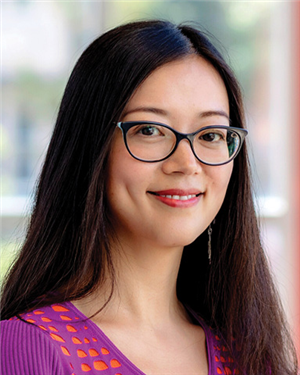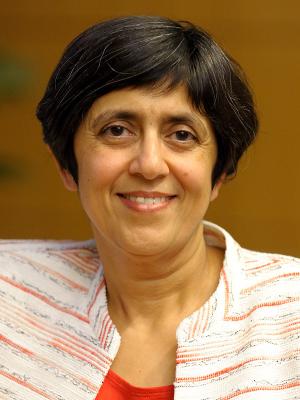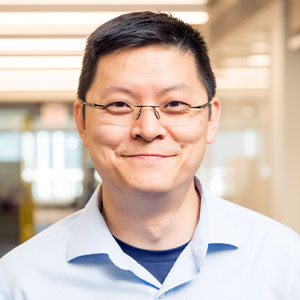Discover What’s Next at the 2025 Distinguished Lecture Series
The Distinguished Lecture Series showcases pioneering thinkers whose work is driving the future of technology. From breakthroughs in theory to real-world applications that shape our daily lives, this year’s speakers will share insights at the forefront of computing. The series offers a unique opportunity to learn from leaders in the field, spark new ideas, and connect with the innovations transforming our world.
October 27, 2025
 OMSCS – The Best Degree Program Ever?
OMSCS – The Best Degree Program Ever?
Zvi Galil
Abstract:
In May 2013, Georgia Tech, together with its partners Udacity and AT&T, announced a new online master’s degree in computer science delivered through the platform popularized by massively open online courses (MOOCs). This new online MS in CS (OMSCS) costs less than $7,000 total, compared to a price tag of $40,000 for an MS CS at comparable public universities and upwards of $70,000 at private universities. The first-of-its-kind program was launched in January 2014 and has sparked a worldwide conversation about higher education in the 21st century. President Barack Obama has praised OMSCS by name twice, and hundreds of news stories have mentioned the program. It’s been described as a potential “game changer” and “ground zero of the revolution in higher education”. Harvard University researchers concluded that OMSCS is “the first rigorous evidence showing an online degree program can increase educational attainment” and predicted that OMSCS will single-handedly raise the number of annual MS CS graduates in the United States by at least 7 percent.
OMSCS started in 2014 with 5 courses and 380 students; in fall 2025 semester, it had 46 courses and almost 17,000 students. OMSCS is apparently the biggest academic program in the world in any subject, not necessarily online. So far, almost 14,500 students have graduated from OMSCS, over 7,000 in the last 3 years. The number of applications to OMSCS keeps rising. In the 2024-25 academic year, there were 9,860 applications, 31% higher than the record in the year before. The program has also paved the way for more than 50 similar programs in over 30 universities. In November 2023, a Forbes article described OMSCS as the best degree program ever. There has been a big shortage of computing professionals in the US. Therefore, OMSCS is satisfying a great national need. Starting in 2017, Georgia Tech expanded its online offerings to undergraduate computer science students. The talk will describe the OMSCS program, how it came about, its first twelve years, and what Georgia Tech has learned from the OMSCS experience. It will also discuss the speaker’s vision of the future of higher education with a much larger role for online learning.
November 5, 2025
 How to Close the 100,000-Year “Data Gap” in Robotics
How to Close the 100,000-Year “Data Gap” in Robotics
Ken Goldberg
Abstract:
Large models based on internet-scale data can now pass the Turing Test for intelligence. In this sense, data has “solved” language, and many analogously claim that data has solved speech recognition and computer vision. Will data also solve robotics and automation, allowing general-purpose humanoid robots to achieve human-level performance? Using commonly accepted metrics for converting word and image tokens into time, the amount of internet-scale data used to train contemporary large vision language models (VLMs) is on the order of 100,000 years. I’ll review 3 ways researchers are pursuing to close this gap, and a 4th approach, where data is collected as real robots operate in real commercial environments — which requires bootstrapping with AI and “good old-fashioned engineering” to create robots with real return on investment that will be adopted by industry. Such robots can create a “data flywheel” to increase performance and enable new functionality, accelerating the timeline to achieve reliable, general-purpose robots.
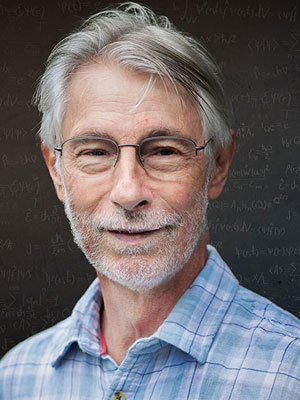 November 24, 2025
November 24, 2025
Quantum Networks: A Classical Perspective
Don Towsley
Abstract:
Quantum information processing is at the threshold of having significant impact on technology and society in the form of providing unbreakable security, ultra-high-precision distributed sensing, and polynomial/exponential speed-ups in computing. Many of these applications are enabled by high rate distributed shared entanglement between pairs and groups of users. A critical missing component that prevents crossing this threshold is a distributed infrastructure in the form of a world-wide “Quantum Internet”. This motivates the study of quantum networks, namely, to identify the right architecture and how should it operate, e.g., dynamic fair allocation of resources. Moreover, the architecture and network operation must account for operation in harsh, noisy environments.
This talk addresses the following question: what ideas can the design of a quantum network borrow from classical networks? At first glance the answer appears to be “very little”. The focus of this talk, however, is to argue that the opposite is true and that much can be borrowed from classical networks. We begin by reviewing two proposed quantum network architectures two-way and one-way architectures. A two-way network generates and distributes quantum entanglement to pairs or groups of users whereas a one-way network allows for direct transfer of quantum information from one user to another. We compare these architectures and conclude that a two-way architecture is superior. A two-way architecture appears very different from the classical Internet architecture. However, we will introduce a “connectionless” two-way quantum network architecture that allows one to easily adapt many ideas from classical networks (good and bad 🙂). We provide several examples of the adoption of good ideas and conclude with open research questions.
December 8, 2025
Towards Accountable Conversational Agents for Task Completion
Abstract:
Task-oriented dialogue systems are designed to assist users in achieving specific, well-defined goals or tasks through natural language interactions. These systems act as a conversational bridge, connecting users to task-specific APIs or tools. Recent advancements have resulted in a significant paradigm shift with the integration of Large Language Models (LLMs) augmented with tool-calling into task-oriented dialogue systems and user simulators that are used for model evaluation and training. However, several issues remain that ponder the use of these systems in real applications.
In this talk, I will share our latest research towards accountability in multi-turn interactions with Large Language Models (LLMs). Our approach, called Reasoning, Acting, and Speaking (ReSpAct), has demonstrated higher task completion rates by engaging with users. To counter user over-reliance, we developed specialized accountability models for dialogue state tracking errors in task-oriented dialogue systems. We also adapted existing annotated dialogue datasets to train an LLM proficient in both interaction and tool calling, showcasing its performance on dialogue system and agentic LLM benchmarks. Our subsequent work utilized reinforcement learning for tool-based reasoning, introducing novel reward mechanisms. Finally, I will discuss user simulation for model evaluation and training. We observed that LLM-based user simulators can deviate from user goals over multi-turn interactions. To address this, we proposed a novel framework that tracks user goal progression throughout conversations, enabling the creation of user simulators that can autonomously monitor goal progression and reason to generate goal-aligned responses.


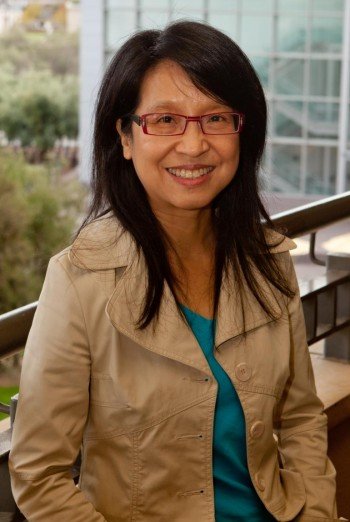 Cognitive Workforce Revolution with Trustworthy and Self-Learning Generative AI
Cognitive Workforce Revolution with Trustworthy and Self-Learning Generative AI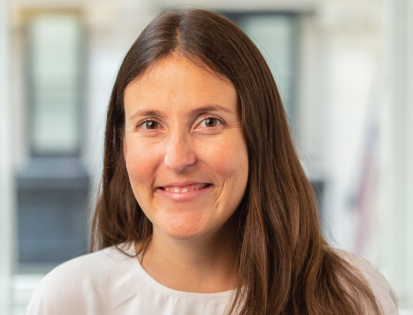 Causal Representation Learning and Optimal Intervention Design
Causal Representation Learning and Optimal Intervention Design